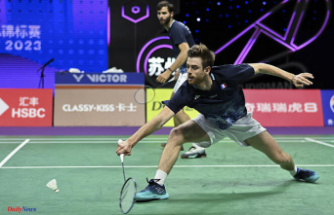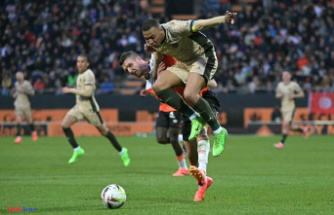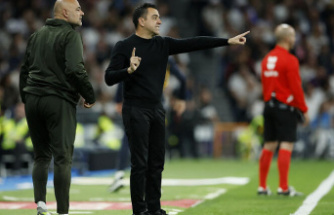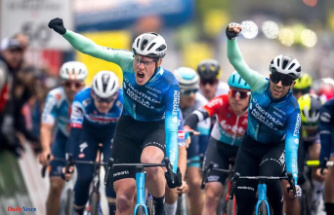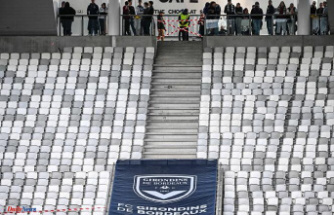For the Ukrainian track and field athletes, the world championship is also a challenge against the background of the Russian war of aggression in their homeland. Russia and Belarus are excluded. Everything else would have been unthinkable for World Association President Sebastian Coe.
The Ukraine war is also a topic that touches people's minds in the peaceful competition for titles and medals at the World Athletics Championships. "None of us want to be in their shoes. It's very sad and a pity," said Germany's best pole vaulter Bo Kanda Lita Baehre about the more than 20 Ukrainian athletes who are at the start in Eugene.
Long jump Olympic champion Malaika Mihambo also paid her respects to the starters of the country attacked by Russia. "I think it's remarkable how the Ukrainian athletes are pulling themselves together and trying to do their best despite this critical situation," said Mihambo.
The world association World Athletics had already reacted after the start of the Ukraine war in February: Russia and Belarus were quickly excluded from the world title fights in the USA. "It would have been unthinkable to organize a world championship here with athletes from Belarus and Russia, two aggressive nations that have invaded an independent state," emphasized world association president Sebastian Coe before the start of the world championship.
The Ukrainian high jumper Yaroslava Mahuchich put it more drastically. "I don't want to see any killers in the stadium. A lot of athletes support the war," said the 2019 World Cup bronze medalist and indoor world champion of the American news agency AP. In the final on Wednesday night (2.40 a.m. / ZDF) she is the gold favorite - also because the three-time world champion Marija Lassizkene from Russia is not at the start.
In an open letter to Thomas Bach, President of the IOC, and Coe, Lassizkene complained that he would not be able to take part in the World Cup. Although Lassizkene showed sympathy for the athletes from Ukraine ("They are experiencing what no human being should ever experience"), he also said that the exclusion of Russia from international sport would not stop the war, but "a new war about and in sport " would have sparked.
The German World Cup title defender Mihambo is in contact with her Ukrainian long jump colleague Maryna Bech-Romantschuk, who won silver at the 2019 World Cup in Doha and should be her rival again in Eugene on the final World Cup weekend. "During the competitions, we also talked about her life during the war. I am connected to her beyond the sporting side," said Mihambo.
The Ukrainian track and field athletes received financial support for the World Cup preparations from World Athletics. More than $220,000 has been made available for the country's participants at the U20 World Cup in Cali, Colombia and the World Cup in Eugene. Because of the war, many top athletes in Ukraine have to train abroad, where tests were organized for them by the World Anti-Doping Agency. Your start at the World Cup is burdened by the war, but it is also associated with a mission.
"The athletics family around the world agrees that it is the right decision," said German association president Jürgen Kessing on the exclusion of Russia and Belarus. "No sensible person can tolerate and understand when one state attacks another - right on our doorstep in the middle of Europe."
Nevertheless, the walker Jonathan Hilbert shows understanding for the Russian athletes. "Of course I'm sorry for them that they are not allowed to start because they have nothing to do directly with the war of aggression," said the Olympic silver medalist over 50 kilometers. "But you have to say clearly that a tough course is being taken internationally that is justifiable and fair." Association leader Kessing shares this view: "It is necessary to set limits, especially at this time. What else should you tolerate?"


